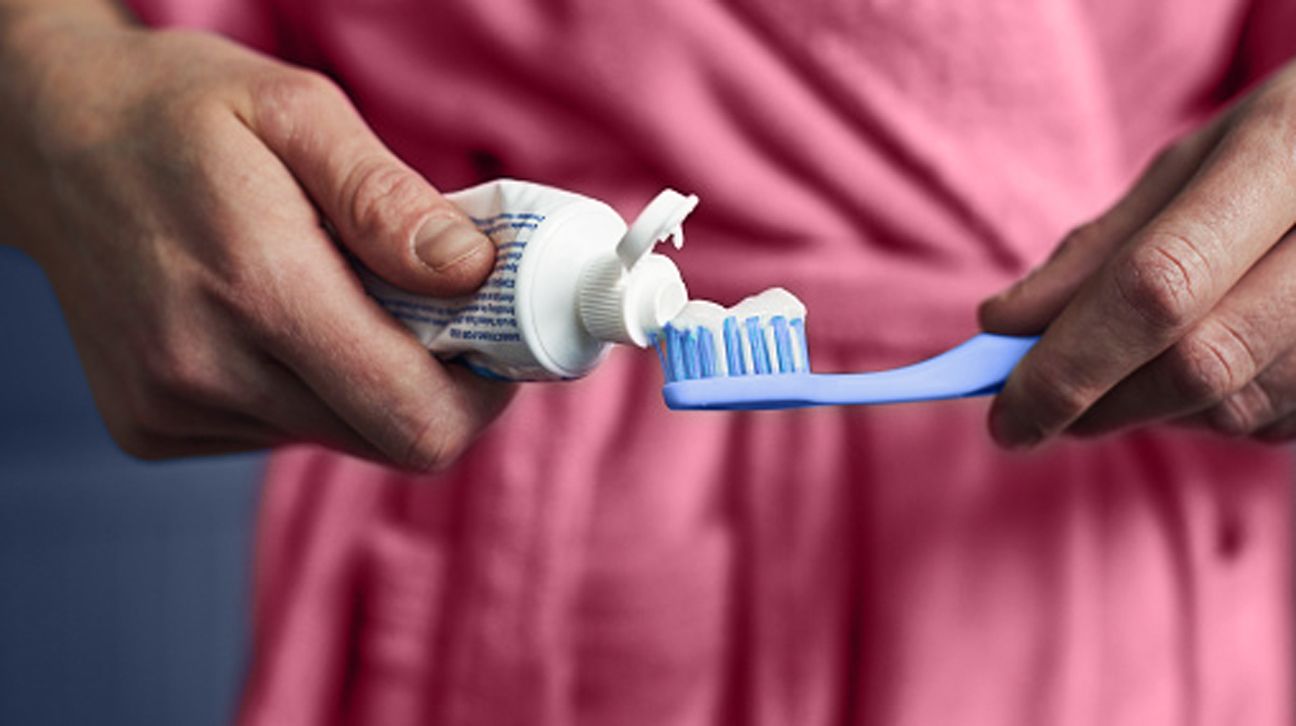We get it: Your nighttime rituals are jam-packed with face washing, skin care regimes, stretching, jammies selection… or, let’s be real, rolling into bed after a night out. Sometimes you might forget to brush your teeth.
For most people, brushing their teeth is a way to keep cavities at bay — with the pleasant side effects of a brighter smile and fresh breath. But we’ve all occasionally skipped the act before hitting the sack, whether out of pure laziness or extreme exhaustion. So how bad is it, really?

The short answer: It doesn’t matter if you brush your teeth right before bed. The most important thing is that you’re brushing your teeth twice in a 24-hour period, says Kimberly Harms, DDS, a dentist and spokesperson for the American Dental Association (ADA).
Here’s what’s happening in your mouth: A film of plaque is constantly building up thanks to the bacteria that live there, and it takes about 24 hours to mature. (That fuzzy feeling in your mouth the morning after you forget to brush? It’s alive!)
The bacteria produce acid throughout the day, and even more when you’re eating, which is why you want to get rid of the film at least twice per day — any less and the acid byproducts may eat into your enamel and cause cavities.
The longer the film sits on your teeth and the more food the bacteria feed on, the more time you’ll spend cringing in the dentist’s chair later on.
Speaking of which, dentists do recommend brushing when you wake up and before you go to sleep — mostly for the sake of forming a habit.
Plus, morning-after dragon breath is real. Brushing before bed is simply an act of kindness toward your bedmate, roommate, or anyone you encounter.
As it turns out, brushing in the space between dinner and bedtime is technically even better for your teeth than brushing right before bed.
That’s because it gives the fluoride in your toothpaste more time to strengthen your teeth and build up their barrier to acid before you go to sleep, says Denis Kinane, BDS, PhD, Dean of the University of Pennsylvania’s School of Dental Medicine.
But don’t head to the bathroom right after you eat: Dinner is a time of peak acid exposure, which softens the surface layer of your enamel, says Yanfang Ren, DDS, PhD.
Immediately going for your toothbrush will remove the softened enamel and cause erosive tooth wear, so wait at least 30 minutes after dinner before you brush up.
And avoid snacking after that — bacteria feeds off of any carbohydrates (we’re not just talking about bread, they’re in nearly every food). If you want to get rid of extra acid and sugar right after you eat, rinse your mouth with some water.
The absence of our antibacterial saliva at night while we sleep means we’re extra vulnerable to cavity-causing agents and gum disease, Harms says, but don’t stress if you forget to brush every once in a great while.
Ren says it takes a long time for plaque to calcify (a fancy way to say “turn dangerous”) and brushing enough should remove day-old plaque — just up your brushing time from 2 minutes to 4, and you should be okay. And don’t forget to floss.
Ingesting carbs throughout the day also leaves people more prone to cavities. “If you snack all day long, the bacteria wake up and start producing acid every time you ingest any type of a carbohydrate,” Harms says.
During a typical meal, your saliva levels are higher, working to protect your teeth and aid in digestion. But as you graze throughout the day (or even slowly sip a cup of coffee), those repeated “exposures” to food give bacteria a meal every time, leading to more acid on your gleaming teeth.
- Brush twice in 24 hours. The ADA recommends brushing your teeth twice a day for 2 minutes each time. (2 minutes is longer than you think!)
- Use a fluoride toothpaste. Fluoride significantly improves dental health to keep those chompers strong.
- Use a toothbrush that works for you. If you have any mobility issues or have trouble with a manual brush, try an electric version.
- Replace your toothbrush. Every 3 to 4 months is a good time frame unless the bristles are bent or you drop it in the toilet.
- Don’t scrub too hard. If you’re flattening out the bristles on the regular, take a lighter touch to prevent damaging your enamel and gums.
- Floss at least once a day. If you’re not doing this, you’re missing a ton of gross stuff in between your teeth wreaking havoc, and stinking up your breath.
- Rinse with water. Rinsing your mouth with water after eating instead of brushing immediately allows for the acids from food to go away before brushing.
The most important thing to remember: It doesn’t matter exactly when you brush your teeth, so long as you head into the night without bacteria (and the food they feed on) in your mouth.
Just be sure to brush those pearly whites twice daily and floss to get the bacteria out from between your teeth and prevent gum problems, tooth decay, and sensitivity. And try to cut back on grazing all day — and maybe that second cup of coffee — to avoid feeding the mouth monsters within.

